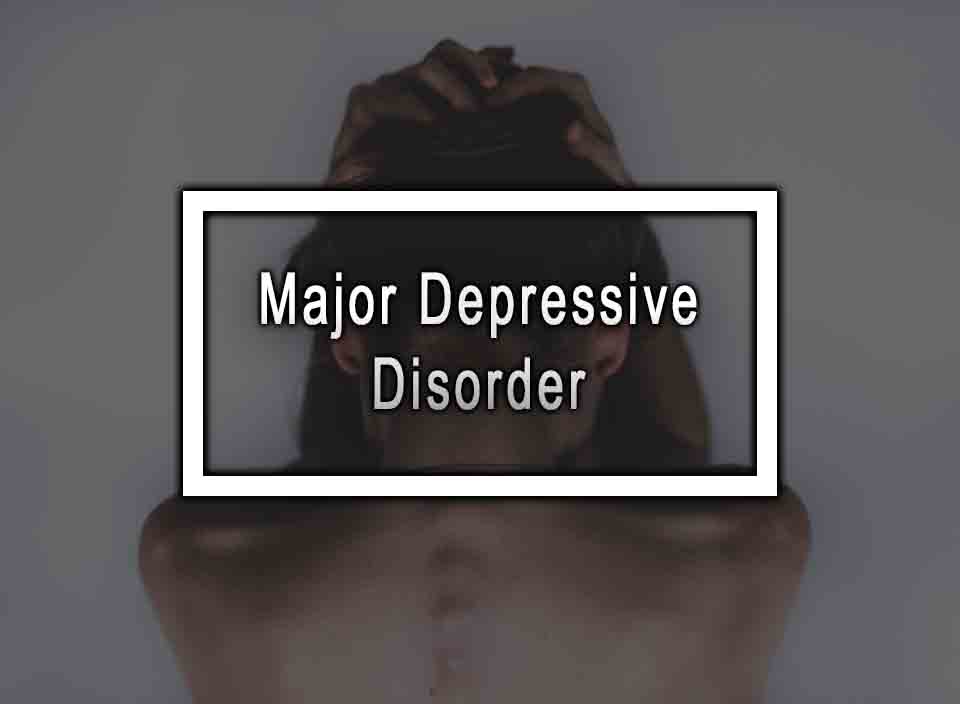Table of Contents
ToggleWhat Is Major Depressive Disorder?
Major depressive disorder, commonly referred to as depression, is a mental health condition characterized by persistent feelings of sadness and hopelessness. It affects approximately 16 million adults in the United States, making it one of the most common mental illnesses in the country. While many individuals may experience symptoms of depression at some point in their lives, major depressive disorder is a more severe form and can significantly impact a person’s quality of life.
Depression is not just feeling sad or blue; it is a chronic and debilitating mental illness. Major depressive disorder is a severe form of depression that causes significant impairment in a person’s ability to function. It can affect all areas of life, from work and education to relationships and self-care. Despite the prevalence of major depressive disorder, many people still avoid seeking help due to the stigma associated with mental illness. It is crucial to understand the symptoms of the illness, the causes, and treatment options to receive appropriate help and support.
Symptoms
Major depressive disorder is characterized by persistent sadness or a feeling of emptiness that lasts for at least two weeks. The following symptoms may also be present:
- Feelings of worthlessness or guilt
- Loss of interest in hobbies or activities that one used to enjoy
- Trouble falling or staying asleep, or sleeping too much
- Significant weight loss or gain
- Fatigue or loss of energy
- Difficulty making decisions or concentrating
- Suicidal thoughts or attempts
The severity of symptoms can vary from person to person, and it is always essential to seek help if you experience any of these symptoms for an extended period.
Causes
The exact cause of major depressive disorder is unknown. However, experts believe that several factors can contribute to the development of the illness, such as:
- Genetics: Depression can run in families, suggesting that genetic factors may play a role in its development.
- Brain chemistry: Chemical imbalances in neurotransmitters in the brain can affect mood and emotional regulation.
- Trauma or stressful events: Experiencing a traumatic event or a significant life stressor, such as a divorce or job loss, can trigger depression.
- Chronic medical conditions: People with chronic illnesses, such as diabetes, heart disease, or cancer, may have a higher risk of developing depression.
Treatment
Several treatment options for major depressive disorder are available, including medication, psychotherapy, and lifestyle changes. The most effective treatment plan will vary from person to person, depending on the severity of their symptoms and other health factors.
- Medication: Antidepressant medication can help balance the neurotransmitters in the brain, improving mood, and reducing symptoms. These medications take time to work and require close monitoring by a healthcare professional.
- Psychotherapy: Talk therapy, such as cognitive-behavioral therapy, can help identify negative thought patterns that contribute to depression. By changing these patterns, individuals may experience reduced symptoms.
- Lifestyle changes: Regular physical exercise, a healthy diet, and stress management techniques can all help reduce symptoms of depression.
Conclusion
Major depressive disorder is a severe mental illness that affects millions of people in the United States. It can significantly impact a person’s quality of life, relationships, and daily functioning. While the exact causes of depression are unknown, genetic factors, brain chemistry, and life experiences can all contribute to its development. Treatment options, including medication, psychotherapy, and lifestyle changes, are available and can significantly improve symptoms. If you or someone you know is struggling with depression, seeking help from a mental health professional is critical. Remember, depression is a treatable illness, and with appropriate support and treatment, individuals can improve their quality of life and enjoy a happy and fulfilling life.
Major Depressive Disorder FAQ
Here are the most common questions about major depressive disorder.
How is Major Depressive Disorder diagnosed?
A diagnosis of Major Depressive Disorder is usually made by a mental health professional, who will assess for symptoms and their impact on daily life. The Diagnostic and Statistical Manual of Mental Disorders (DSM-5) is often used as a guide for diagnosis.
What is the treatment for Major Depressive Disorder?
Treatment for Major Depressive Disorder can include medications, therapy, or a combination of both. Some common medications used include antidepressants, mood stabilizers, and anxiolytics. Therapy may include cognitive-behavioral therapy, interpersonal therapy, and psychotherapy.
Can Major Depressive Disorder be cured?
There is no known cure for Major Depressive Disorder, but it can be effectively managed with treatment. Many people with the condition are able to lead fulfilling lives with the help of medication and therapy.
What are the risk factors for Major Depressive Disorder?
Risk factors for Major Depressive Disorder include a family history of depression, personal history of depression or other mental illnesses, chronic illness, substance abuse, and stressful life events.
Are there any self-help strategies for Major Depressive Disorder?
While self-help strategies are not a substitute for professional treatment, there are some things that can be done to manage symptoms of Major Depressive Disorder. Some common strategies include staying physically active, getting enough sleep, eating a healthy diet, engaging in pleasurable activities, and socializing with others. Additionally, mindfulness meditation and other relaxation techniques may be helpful.
More like this: Social Anxiety Disorder












